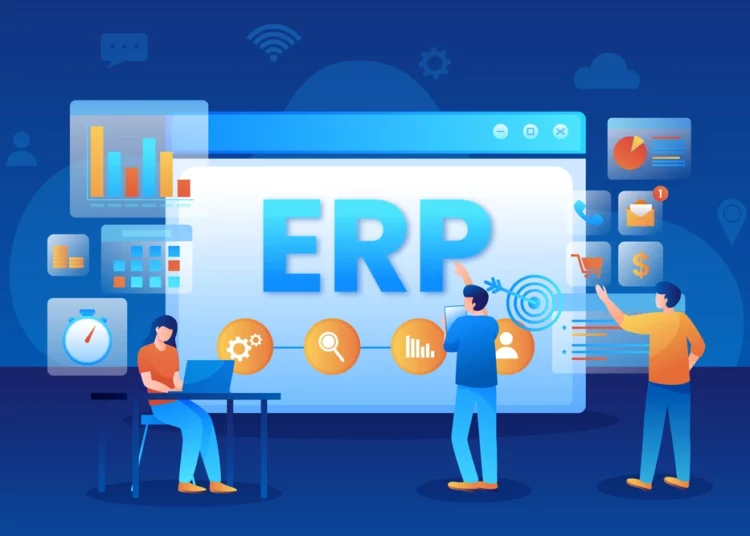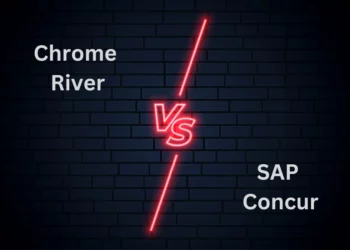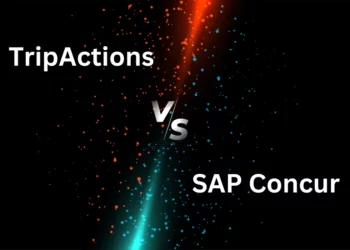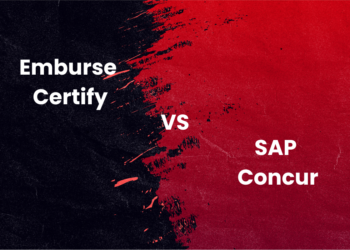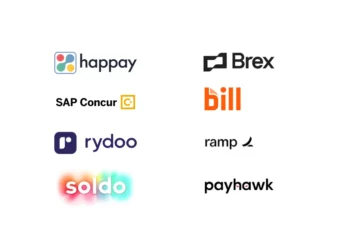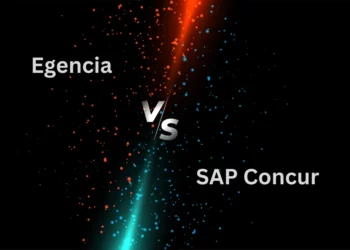Introduction to enterprise software
Enterprise software is a system designed to meet the needs of large organizations (or enterprises), such as corporations, governments, and non-profit institutions. It is a complex and scalable platform tailored to meet a particular enterprise’s specific needs.
This blog post discusses 8 enterprise software in India and studies their effectiveness, features, and ratings. It serves as an exhaustive guide to choosing the best enterprise software for your organization.
Read More: What is Cloud ERP Software and How does it Work?
List of TOP 8 enterprise software in India
- Oracle NetSuite
- Orion ERP
- Ramco ERP
- Microsoft Dynamics 365 Business Central
- Crest ERP
- Reach ERP
- CBO ERP
- Pact ERP
TOP 8 enterprise software in India of 2024 – Comparative table
ERP Software |
Features |
Pros |
Cons |
Pricing |
Oracle NetSuite |
Financial management Inventory management CRM e-commerce Order management Project management Human resources management |
Comprehensive and integrated suite of business applications Cloud-based deployment Customizable and flexible Strong financial management capabilities User-friendly interface and intuitive navigation |
Steep learning curve for new users Limited customization options for certain modules High implementation and customization costs Limited third-party integrations |
Flexible pricing based on the specific needs of the business. Pricing is not disclosed publicly, and businesses need to contact Oracle NetSuite for a customized quote. |
Orion ERP |
Financial management Procurement and inventory management Production management Quality control Sales and distribution Customer relationship management Human resources and payroll management Business intelligence and analytics |
Comprehensive solution for managing operations User-friendly interface Robust reporting and analytics capabilities Customizable Improves efficiency and productivity Streamlines operations Increases customer satisfaction Provides real-time data analysis |
Can be expensive Some users have reported issues with system stability and slow performance Implementation process can be complex and time-consuming |
Pricing varies depending on the size and needs of the business. Interested businesses can contact the Orion ERP sales team for a personalized quote. |
Ramco ERP |
Financial management Procurement and inventory management Production management Quality control Sales and distribution |
Comprehensive solution for managing operations User-friendly interface Advanced analytics and reporting capabilities Customizable |
Can be expensive Some users have reported issues with system stability and slow performance Implementation process can be complex and time-consuming |
Pricing varies depending on the size and needs of the business. Interested businesses can contact the Ramco ERP sales team for a personalized quote. |
Microsoft Dynamics 365 Business Central |
Financial management Supply chain management Sales and service management Project management Inventory management Manufacturing Human resources Analytics and reporting |
Cloud-based platform accessible from anywhere, at any time Range of features in a single platform, High level of scalability, Customizable |
Some users report issues with the software’s user interface Limitations in certain areas such as inventory management Pricing can be a concern for some businesses |
Offers a range of pricing options, depending on the size and needs of the business. Interested businesses can contact Microsoft Dynamics sales team for a personalized quote. |
Crest ERP |
Financial management Supply chain management Production management Quality control Sales and distribution Customer relationship management Human resources and payroll management, Project management |
Comprehensive solution for managing operations in a single platform and user-friendly interface |
May be Expensive and the Implementation process can be complex and time-consuming |
Contact sales team for a personalized quote |
Reach ERP |
Financial management Supply chain management Sales and service management Project management Inventory management Manufacturing Human resources and payroll management Analytics and reporting |
Cloud-based platform accessible from anywhere, at any time and has a wide range of features in a single platform |
Some users report issues with the software’s user interface. Plus, it has limited customization options in certain areas |
Contact sales team for a personalized quote |
CBO ERP |
Financial management Sales and purchase management Inventory management Production and manufacturing management Human resource management Customer relationship management Reporting and analytics |
Affordable ERP solution for small and medium-sized businesses and user-friendly interface |
May not be suitable for larger businesses or those with more complex operations |
Contact sales team for a personalized quote |
Pact ERP |
Financial management Sales and purchase management Inventory management Production and manufacturing management Human resource management Customer relationship management Reporting and analytics |
Real-time data and analytics to help businesses make informed decisions |
The software may not have as many features as other ERP solutions |
Contact sales team for a personalized quote |
TOP 8 enterprise software- A detailed analysis
1. Oracle NetSuite
Overview
Oracle NetSuite is a cloud-based enterprise resource planning (ERP) software suite that is designed to help businesses manage their financials, inventory, customer relationships, and more. It includes modules for accounting, order management, inventory management, CRM, and e-commerce, among others. It is primarily aimed at mid-sized businesses but can be used by businesses of all sizes and industries.
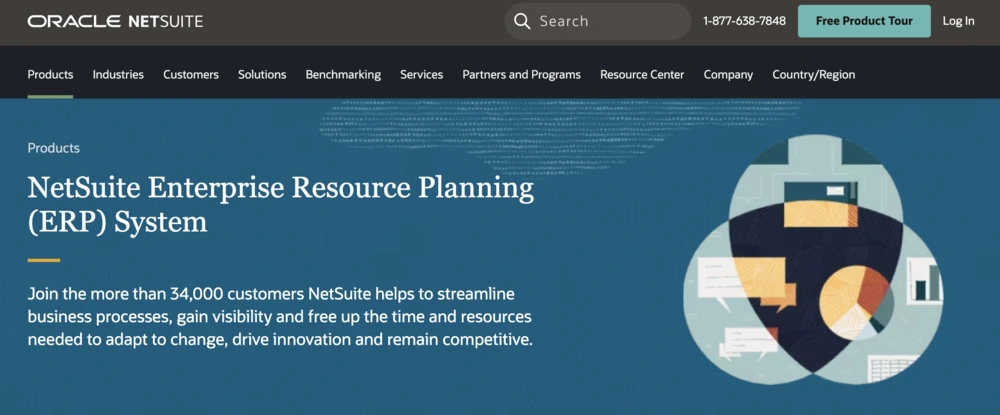
Features
- Financial management, including general ledger, accounts payable and receivable, and billing
- Inventory management, including demand planning, supply chain management, and order fulfillment
- CRM, including sales and marketing automation, customer service, and support
- E-commerce, including web store, shopping cart, and payment processing
- Order management, including order processing, fulfillment, and tracking
- Project management, including project planning, budgeting, and resource allocation
- Human resources management, including payroll, benefits, and performance management
Benefits
- Improved visibility and control over financials, inventory, and customer relationships
- Increased efficiency and productivity through automation and streamlined processes
- Scalability and flexibility to adapt to changing business needs
- Enhanced customer experience through personalized and omnichannel interactions
- Reduced IT costs and complexity through cloud-based deployment
Pros
- Comprehensive and integrated suite of business applications
- Cloud-based deployment for easy accessibility and scalability
- Customizable and flexible to meet specific business needs
- Strong financial management capabilities
- User-friendly interface and intuitive navigation
Cons
- Steep learning curve for new users
- Limited customization options for certain modules
- High implementation and customization costs
- Limited third-party integrations
Pricing
Oracle NetSuite offers flexible pricing based on the specific needs of the business. It offers a modular pricing model, where businesses can choose the modules they need and pay for them accordingly. Pricing is not disclosed publicly, and businesses need to contact Oracle NetSuite for a customized quote. However, it is generally considered to be on the higher end of the pricing spectrum for ERP software.
Quick Read: 10 Best ERP Software
2. Orion ERP
Overview
Orion ERP offers a suite of modules including finance, human resources, sales and marketing, manufacturing, supply chain, and more, that work together to provide businesses with a comprehensive solution for managing their operations.
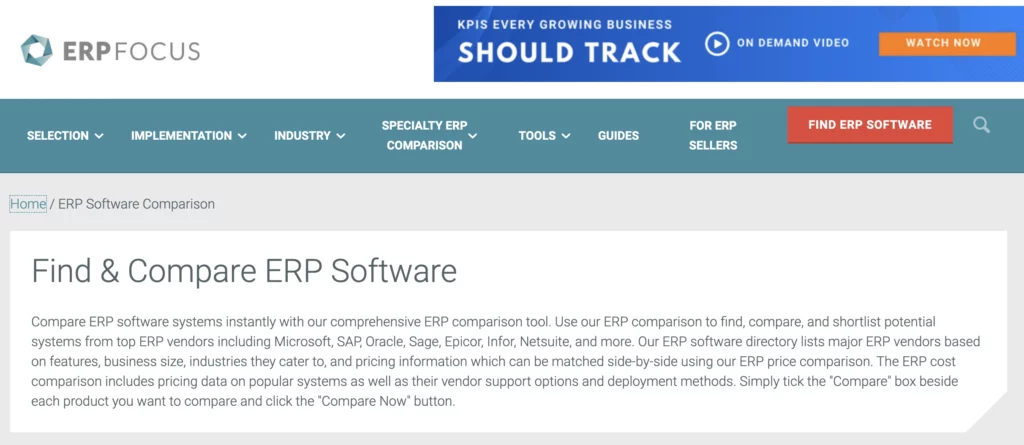
Features
- Financial management
- Procurement and inventory management
- Production management
- Quality control
- Sales and distribution
- Customer relationship management
- Human resources and payroll management
- Business intelligence and analytics
Benefits
- Improved efficiency and productivity
- Better decision-making through real-time data analysis
- Streamlined operations
- Increased customer satisfaction
- Reduced costs through process automation
- Comprehensive solution for managing operations
- User-friendly interface
- Robust reporting and analytics capabilities
- Customizable to meet specific business needs.
Pros
- Comprehensive solution for managing operations
- User-friendly interface
- Robust reporting and analytics capabilities
- Customizable to meet specific business needs
- Improves efficiency and productivity
- Streamlines operations
- Increases customer satisfaction
- Provides real-time data analysis
- Offers a range of modules including financial management, procurement, inventory management, production management, and more
Cons
- Can be expensive
- Some users have reported issues with system stability and slow performance
- Implementation process can be complex and time-consuming.
Pricing
Pricing for Orion ERP varies depending on the size and needs of the business. Interested businesses can contact the Orion ERP sales team for a personalized quote.
Quick Read: 10 Best Business Management Software
3. Ramco ERP
Overview
Ramco ERP is an enterprise resource planning software developed by Ramco Systems, designed to help businesses manage their operations and automate processes across departments.
Ramco ERP offers a range of modules, including financial management, supply chain management, human resources management, customer relationship management, and more, that work together to provide businesses with a comprehensive solution for managing their operations.
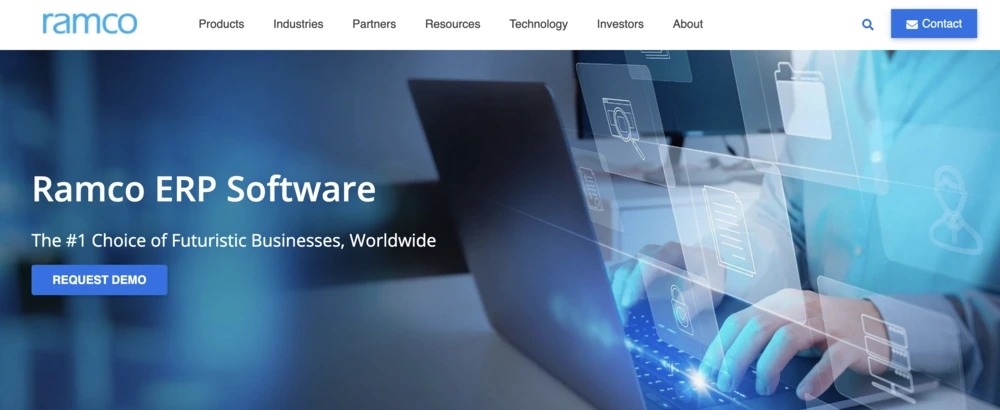
Sure, here are the features, benefits, pros, and cons of Ramco ERP in bullet points:
Features
- Financial management
- Procurement and inventory management
- Production management
- Quality control
- Sales and distribution
Benefits
- Improved efficiency and productivity
- Better decision making through real-time data analysis
- Streamlined operations
- Increased customer satisfaction
- Reduced costs through process automation
- Comprehensive solution for managing operations
- User-friendly interface
- Can be customized to meet specific business needs
Pros
- Comprehensive solution for managing operations
- User-friendly interface
- Advanced analytics and reporting capabilities
- Can be customized to meet specific business needs
Cons
- Can be expensive
- Some users have reported issues with system stability and slow performance
- Implementation process can be complex and time-consuming.
Pricing
Pricing for Ramco ERP varies depending on the size and needs of the business. Interested businesses can contact the Ramco ERP sales team for a personalized quote.
Quick Read: 10 Best Workflow Management Software
4. Microsoft Dynamics 365 Business Central
Overview
Microsoft Dynamics 365 Business Central is a cloud-based enterprise resource planning (ERP) software that helps businesses manage their operations, finance, sales, and customer service in one integrated platform.
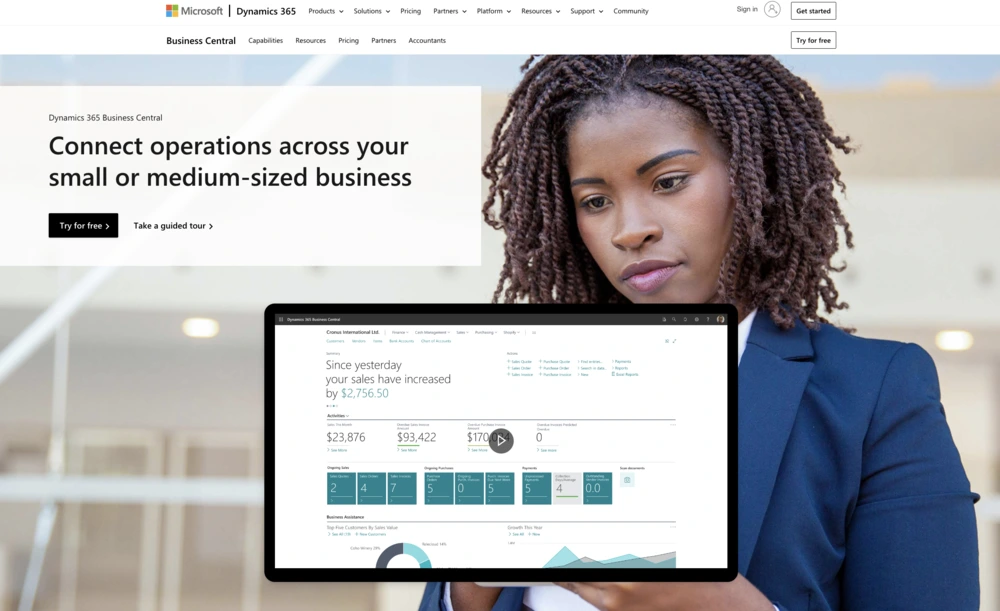
Features
- Financial management
- Supply chain management
- Sales and service management
- Project management
- Inventory management
- Manufacturing
- Human resources
- Analytics and reporting
Benefits
- Improved productivity and efficiency
- Streamlined operations
- Real-time insights into business performance
- Enhanced collaboration
- Better customer engagement
Pros
- Cloud-based platform accessible from anywhere, at any time
- Range of features in a single platform
- High level of scalability
- Customizable to meet specific business needs
Cons
- Some users report issues with the software’s user interface
- Limitations in certain areas such as inventory management
- Pricing can be a concern for some businesses
Pricing
Microsoft Dynamics 365 Business Central offers a range of pricing options, depending on the size and needs of the business. Interested businesses can contact Microsoft Dynamics sales team for a personalized quote.
Quick Read: 10 Best Project Management Software
5. Crest ERP
Overview
Crest ERP is an enterprise resource planning software developed by Hewlett-Packard (HP) that helps businesses manage their operations and automate processes across departments.
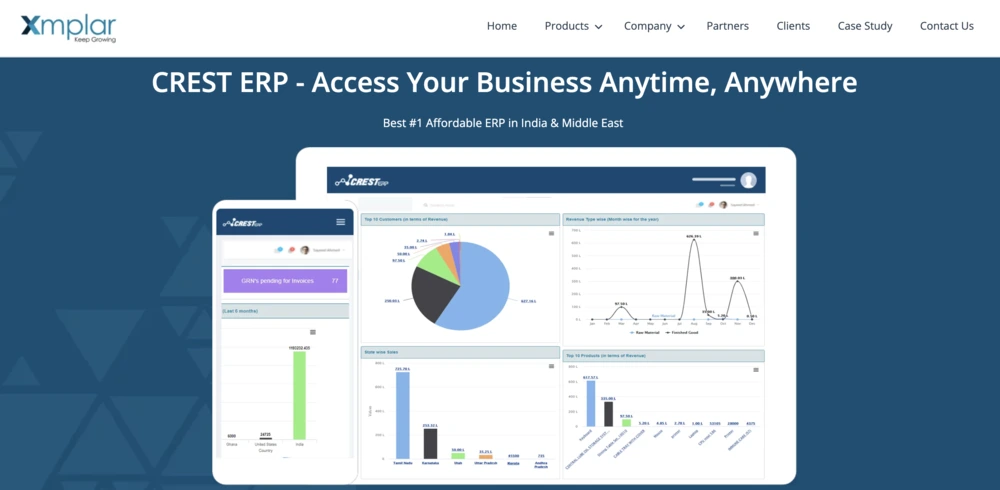
Features
- Financial management
- Supply chain management
- Production management
- Quality control
- Sales and distribution
- Customer relationship management
- Human resources and payroll management
- Project management
Benefits
- Improved efficiency and productivity
- Better decision making through real-time data analysis
- Streamlined operations
- Increased customer satisfaction
- Reduced costs through process automation
Pros
- Comprehensive solution for managing operations in a single platform
- User-friendly interface
- Advanced analytics and reporting capabilities
- Customizable to meet specific business needs
Cons
- Expensive
- Implementation process can be complex and time-consuming
- Some users have reported issues with system stability and slow performance
Pricing
Crest ERP pricing varies depending on the size and needs of the business. Interested businesses can contact the Crest ERP sales team for a personalized quote.
Quick Read: TOP 10 Procurement Software Solutions
6. Reach ERP
Overview
Reach ERP is an enterprise resource planning software developed by Reach Accountant that helps businesses manage their operations and automate processes across departments.
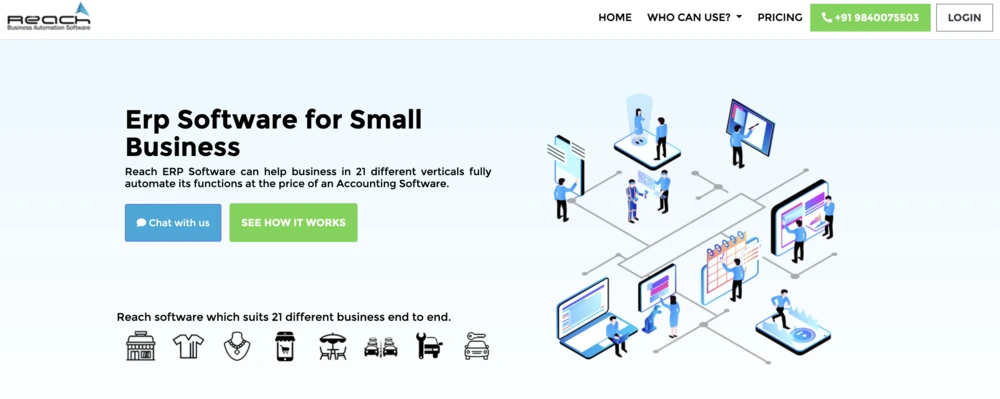
Features
- Financial management
- Supply chain management
- Sales and service management
- Project management
- Inventory management
- Manufacturing
- Human resources and payroll management
- Analytics and reporting
Benefits
- Improved productivity and efficiency
- Streamlined operations
- Real-time insights into business performance
- Enhanced collaboration
- Better customer engagement
Pros
- Cloud-based platform accessible from anywhere, at any time
- Range of features in a single platform
- High level of scalability
- Customizable to meet specific business needs
- Affordable pricing
Cons
- Some users report issues with the software’s user interface
- Limited customization options in certain areas
- Less robust than some of the more established ERP solutions
Pricing
Reach ERP offers affordable pricing options, depending on the size and needs of the business. Interested businesses can contact Reach ERP sales team for a personalized quote.
Quick Read: 8 Best Inventory Management Software
7. CBO ERP
Overview
CBO is an ERP software solution that is designed for small and medium-sized businesses. It helps businesses manage their processes and operations efficiently and effectively.
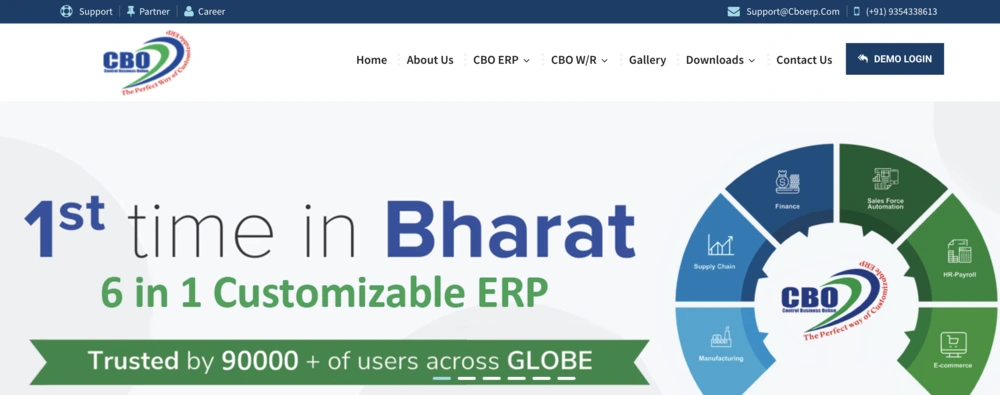
Features
- Financial management
- Sales and purchase management
- Inventory management
- Production and manufacturing management
- Human resource management
- Customer relationship management
- Reporting and analytics
Benefits
- CBO ERP can help businesses automate their processes, which can lead to increased efficiency and productivity.
- It provides real-time data to help businesses make informed decisions.
- With a centralized database, CBO ERP can help businesses streamline their operations and reduce data entry errors.
- CBO ERP is easy to use and can be customized to meet specific business needs.
Pros
- CBO ERP is affordable and can be a good option for small and medium-sized businesses.
- The software is user-friendly and easy to navigate.
- CBO ERP provides real-time data and analytics, which can help businesses make informed decisions.
Cons
- CBO ERP may not be suitable for larger businesses or those with more complex operations.
- The software may not have as many features as other ERP solutions.
Pricing
CBO ERP pricing varies depending on the size and needs of the business. Interested businesses can contact the CBO sales team for a personalized quote.
Quick Read: 10 Best Financial Management Tools
8. Pact ERP
Overview
Pact ERP is an enterprise resource planning software designed for small and medium-sized businesses. It offers a range of features to help businesses manage their operations and improve their overall performance.
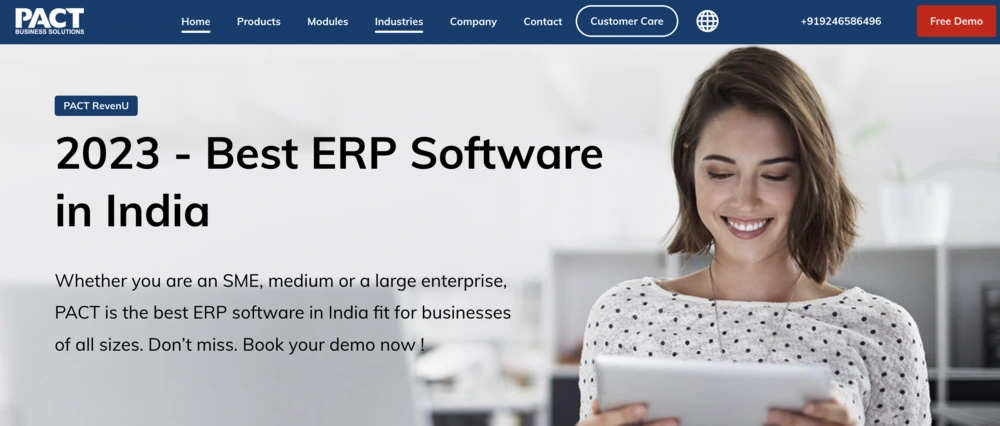
Features
- Financial management
- Sales and purchase management
- Inventory management
- Production and manufacturing management
- Human resource management
- Customer relationship management
- Reporting and analytics
Benefits
- Pact ERP provides businesses with a centralized database to help streamline their operations and reduce errors.
- It offers real-time data and analytics to help businesses make informed decisions.
- Pact ERP is scalable and can grow with a business’s needs.
- The software is easy to use and can be customized to meet specific business needs.
Pros
- Pact ERP is affordable and can be a good option for small and medium-sized businesses.
- The software is user-friendly and easy to navigate.
- Pact ERP provides real-time data and analytics, which can help businesses make informed decisions.
Cons
- Pact ERP may not be suitable for larger businesses or those with more complex operations.
- The software may not have as many features as other ERP solutions.
Pricing
Pact ERP pricing varies depending on the size and needs of the business. Interested businesses can contact the Pact ERP sales team for a personalized quote.
Quick Read: 10 Best Expense Management Software
Who uses enterprise software?
Enterprise software is used by businesses of all sizes and types, but it is primarily utilized by organizations that manage large amounts of data and have a substantial workforce.
- Manufacturing: Manufacturing companies often use enterprise software to manage their supply chains, production processes, and inventory control.
- Healthcare: Healthcare organizations use enterprise software to manage patient data, medical records, and billing and payment systems.
- Finance: Financial institutions use enterprise software for financial analysis, risk management, and trading systems.
- Retail: Retailers use enterprise software for inventory management, point-of-sale systems, and e-commerce platforms.
- Logistics: Logistics companies use enterprise software to manage shipping and delivery schedules, tracking, and route optimization.
- Government Agencies: Government agencies use enterprise software for managing budgets, human resources, and public services.
Types of Enterprise Software
Enterprise software can be categorized into several types based on their functionalities.
Here are some of the most common types:
1. Customer Relationship Management (CRM) Software
CRM software helps businesses manage their customer interactions and data. It allows companies to track leads, sales, and customer support tickets.
Best in the industry: Pact ERP
2. Enterprise Resource Planning (ERP) Software
ERP software helps businesses manage their day-to-day operations, such as inventory, accounting, and human resources. It integrates all the different processes and systems in a company.
Best in the industry: Oracle NetSuite
3. Supply Chain Management (SCM) Software
SCM software helps businesses manage their supply chain processes, including sourcing, procurement, logistics, and delivery. It helps companies optimize their supply chain and reduce costs.
Best in the industry: Orion ERP
4. Business Intelligence (BI) Software
BI software helps businesses collect, analyze, and visualize their data to gain insights and make informed decisions. It provides interactive dashboards, reports, and data visualizations.
Best in the industry: Orion ERP
5. Collaboration Software
Collaboration software helps teams work together more efficiently. It includes tools for communication, project management, file sharing, and virtual meetings.
Best in the industry: Microsoft Dynamics 365 Business Central
Importance of Enterprise Software
Enterprise software plays a critical role in helping businesses streamline their operations, improve efficiency, and reduce costs.
Here are some of the key benefits:
- Centralized data management
- Increased productivity and efficiency
- Better decision-making and business insights
- Improved customer experience and satisfaction
- Enhanced collaboration and communication
Benefits of Enterprise Software
Here are some of the key benefits of using enterprise software:
- Increased efficiency and productivity
- Improved collaboration and communication
- Better decision-making and insights
- Enhanced customer experience and satisfaction
- Streamlined operations and reduced costs
Features to Consider in Enterprise Software
When selecting an enterprise software solution, it is important to consider the following features:
- Scalability and flexibility
- Integration with existing systems
- Data security and privacy
- User interface and ease of use
- Customization and personalization options
Pros and Cons of Enterprise Software
Like any technology, enterprise software has its pros and cons.
Here are some of the advantages and disadvantages:
Pros
- Streamlined processes
- Increased productivity and efficiency
- Improved data accuracy and consistency
- Real-time access to information
Cons
- Costly to implement and maintain
- Complex and time-consuming to set up
- It may require extensive training for users
- Potential for data breaches and security risks
Challenges in the Enterprise Software
1. Data Migration
One of the biggest challenges of implementing enterprise software is migrating data from existing systems to the new software. This can be a complex and time-consuming process that requires careful planning and execution to ensure data integrity and accuracy.
2. Employee Training
Enterprise software is often complex and requires specialized training to use. Employees may require extensive training to understand the software’s features and functionalities, which can be a significant investment in time and resources.
3. Security Concerns
Enterprise software often contains sensitive data and requires robust security measures to prevent data breaches and cyber attacks. Implementing effective security protocols can be a challenge for businesses, as it requires expertise in the latest security technologies and best practices.
4. Customization
Enterprise software is designed to meet the needs of various businesses, but it may not meet all the requirements of a specific organization. Customization of the software can be a challenge, as it requires expertise in software development and may require additional costs.
5. Maintenance Costs
Enterprise software requires regular maintenance to ensure it runs efficiently and effectively. This can be a significant expense for businesses, as it requires hiring specialized staff or contracting with software vendors.
How much does enterprise software cost?
The cost of enterprise software can vary depending on several factors, including the software’s features, the number of users, and the level of customization. In addition to the upfront costs, there may be hidden costs to consider, such as:
1. Implementation costs
Implementation costs include the time and resources required to install and set up the software, which can be a significant expense.
2. Maintenance costs
Enterprise software requires ongoing maintenance to keep it running smoothly. This can include updates, bug fixes, and security patches, which can add to the overall cost of the software.
3. Training costs
Training costs may be necessary to ensure that your employees are properly trained on how to use the software. This can be a significant investment in time and resources, depending on the complexity of the software.
4. Integration costs
If the software needs to be integrated with other systems, there may be additional costs associated with this process.
It’s important to consider all of these factors when budgeting for enterprise software to ensure that you are getting the most value for your investment.
How to Choose the Right Enterprise Software?
Choosing the right enterprise software is crucial for your business’s success, and there are several factors to consider before making a decision.
Here are some tips and advice to help you choose the best enterprise software for your business needs:
- Assess your business needs
Identify your business goals and requirements for the software. Consider the size of your business, the number of users, and the type of data you need to manage.
- Determine your budget
Enterprise software can be expensive, so it’s important to determine your budget before making a decision. Look for software that fits within your budget but also meets your business needs.
- Evaluate scalability
Consider how the software will grow with your business. Can it handle an increase in users and data volume? Is it easy to upgrade and add new features?
- Consider industry-specific needs
Some industries have specific software requirements, such as compliance regulations. Make sure the software you choose meets those industry-specific needs.
- Read reviews and compare features
Read reviews and compare the features of different software options. Look for software that has a proven track record and positive customer feedback.
Conclusion
In conclusion, the top 8 enterprise software solutions in India are leading the way in providing innovative and efficient tools to businesses across various industries. Each software has its unique strengths and features, and it is essential to choose one that fits your business needs and budget.
Investing in the right enterprise software can help businesses streamline their operations, boost productivity, and ultimately lead to growth and success. With the rapid advancements in technology, businesses can expect even more innovative and comprehensive solutions in the future.
FAQ’s
Enterprise software examples include customer relationship management (CRM), enterprise resource planning (ERP), supply chain management (SCM), and human resource management (HRM) systems.
Enterprise system software refers to large-scale software applications used to manage complex business processes, data, and operations across an organization. These software systems are typically used by large corporations and are designed to improve efficiency, productivity, and collaboration.
The main types of enterprise software are CRM, ERP, SCM, HRM, and business intelligence (BI) software.
The three types of enterprise software are off-the-shelf, custom, and open-source software. Off-the-shelf software is pre-built and readily available, while custom software is developed specifically for an organization’s unique needs. Open-source software is developed collaboratively and made available for free.
Enterprise software is designed to support complex business processes and operations across an organization, while consumer software is designed for personal use. Enterprise software is typically more expensive and complex, while consumer software is often simpler and more affordable.
Software as a Service (SaaS) is a software delivery model where software applications are provided over the internet, rather than being installed on local devices. SaaS applications are typically accessed through a web browser and paid for on a subscription basis.
A system is a collection of hardware, software, and data that work together to perform a specific function or set of functions. An application is a type of software designed to perform a specific task or set of tasks. Applications are typically installed on top of an operating system and rely on the underlying system to function.
